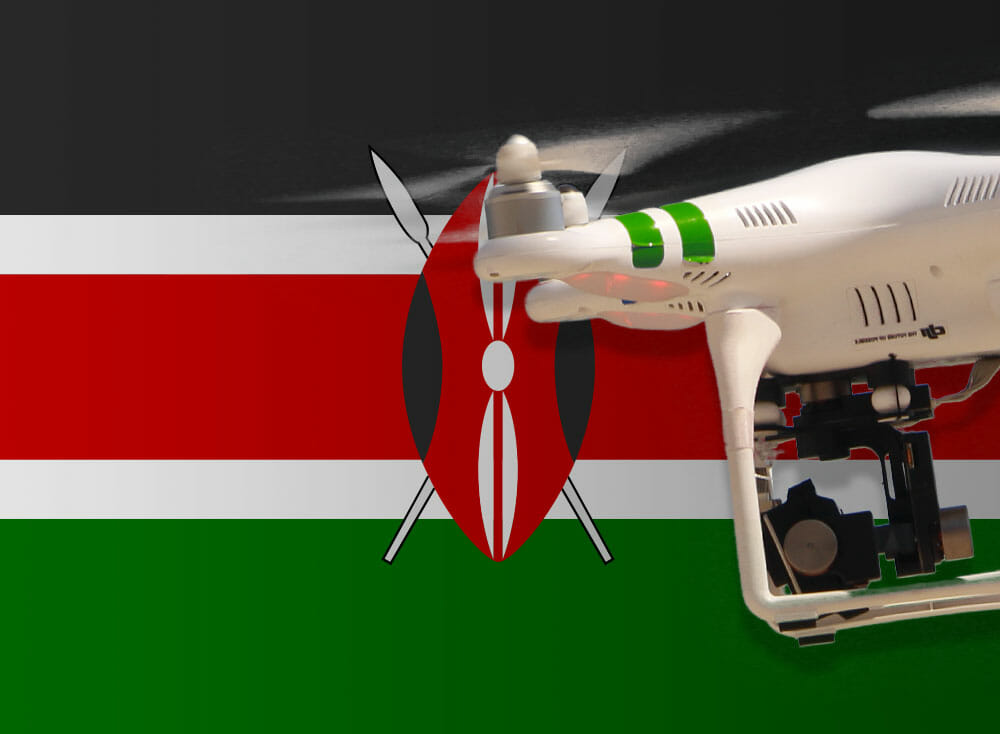BY TONY MWANGI – CEO, Drone Space
Earlier in the pandemic, there were reports of the planned use of drones for public monitoring and surveillance in major urban areas. As expected, there was a public outcry and general negative sentiments about this. Human rights activists criticized such use due to potential abuse of civil rights; thankfully someone dropped that idea.
Nearly 18 months into the pandemic, the Covid-19 containment measures have mutated. The initial response plan aimed at taming rapid community transmission including the introduction of curfew, inter-county border closer, ban on public gathering, and closing of schools, unfortunately, placed the economy on hold; leaving a heavy toll on both the social life and the economy.
Today, although the public is witnessing pandemic fatigue, there is greater awareness and acceptance of personal responsibility in this fight.
With the pandemic response changing from mass testing to vaccine distribution, Kenya has an opportunity to add drone technology into the pandemic response’s toolbox.
READ>>>>>Drone Space Receives ROC Certification for Commercial Drone Operations
Unmanned aircraft vehicles or drones are promising an alternative solution to the delivery of life-saving medical supplies.
Drones can be used to accelerate the provision of vaccines and other Covid-19 medical supplies to remote parts of the countries like Mfangano Island, Baringo, Kipevu, and even the larger northern frontier. This would cut the transport times to these sparsely populated remote areas, enabling healthcare to provide COVID-19 diagnoses more speedily and ease pressure on already overstretched healthcare facilities in those regions.
A lot more can be achieved if we optimize this technology in our war against the pandemic. Evidence from other countries— including Rwanda, Malawi, and Ghana— which had the foundations of the drone conducive environment shows that if well mobilized this technology can complement the efforts to fight the pandemic.
In Kenya, because of the enabling factors such as regulation, political goodwill, social acceptance, and most importantly capacity and skills to operate drones, we are uniquely positioned to leverage drone technology to expand vaccine access to the remote areas.
Delivering vaccines, especially to rural parts of the country is a critical step in ensuring equitable access to this life-saving medicine. In addition, it will help improve the Covid-19 vaccine uptake, that has remained low across Africa. Especially now that it is clear that the only way of attaining herd immunity is through vaccination.
Today, nearly three years into the regulations enabling commercial operations of drones in Kenya, we have a pool of competent pilots that can safely navigate the skies to deliver vaccines, testing equipment, and other medical samples.
We are already seeing the government embracing this technology. In April, during World Malaria Day, the Cabinet Secretary for Health Mutahi Kagwe announced that the government will use drones to map out mosquito breeding sites in a renewed effort to curb malaria.
This is good progress and goes a long way in showing that the government is keen on levering emerging technologies to confront modern challenges.
Drone technology will continue to play an increasing role in optimizing various sectors including agriculture, housing, security, tourism amongst other key sectors of our economy, but first, we must master how to fly and operate them right.
Effective deployment of this technology, however, cannot be scaled without building an appropriate support system and enabling environment. In order to operationalize the use of drones for pandemics or, in general, health supply chain work, enabling environment becomes crucial.
READ>>>>>What You Should Know Before Operating Drones in Kenya
Kenya must enhance regulations on the Beyond Visual Line of Sight (BVLOS). The regulator, Kenya Civil Aviation Authority working with the industry, should renew discourse and development of a regulatory path for a routine BVLOS operations.
Achieving this will be a major milestone, building on the work the Authority has done to mainstream the drone sector for commercial operationalization. Better yet, it will help pave the way for routine package delivery, infrastructure inspection, and other more complex drone operations that the industry is yearning for.
Drone program implementation whether in agriculture, health, aerial mapping, or any other commercial operation, however, cannot be done without local skills and capacity therefore, training and knowledge transfer is the key enabler.
This does not only apply to people who can run drone operations, but also to governmental entities and the health sector that are the ultimate end-users of this technology. At Drone Space, we are preparing to start a BVLOS course. Our data shows diversity of training needs with wide interest in out of visual sight training.
Kenya is amongst the few African countries with comprehensive legislation on unmanned aircraft systems that guide the licensing, approval, and operation of drones, we can optimize this technology to meet local challenges.
__

Tony Mwangi is the Chief Executive Officer at Drone Space











![Michael Joseph's global profile is immense thanks to his time as Founder CEO of Safaricom - the region's most profitable company. [Photo/ Tech-ish]](https://businesstoday.co.ke/wp-content/uploads/2022/04/images-36.jpeg)

Leave a comment